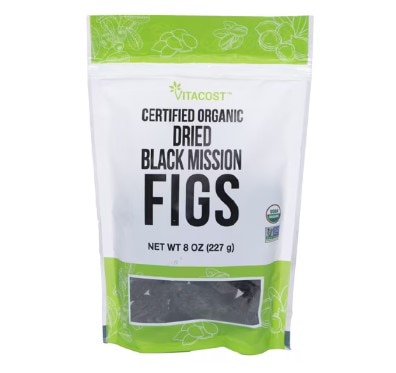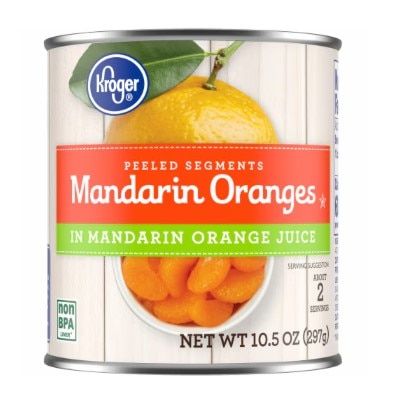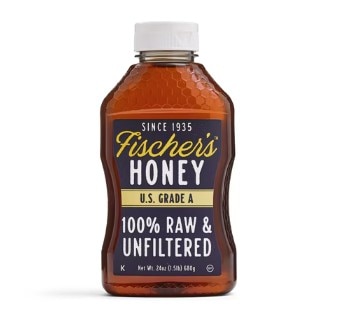As the weather gets colder, more time is spent indoors. This puts everyone in closer proximity and provides the perfect environment for germs and viruses to thrive. No need to worry though, there are plenty of ways to fight back.
What to Eat Before Getting Sick
The first line of defense against these pesty germs is to fuel the body with nourishing foods, manage stress, get adequate rest and have good hygiene.
Eating a diet that includes a variety of foods ensures intake of a variety of vitamins and minerals. Many vitamins and minerals play a crucial role in supporting the immune system. Nutrients of focus include vitamin C, vitamin A, vitamin E, vitamin D, zinc, selenium, probiotics and protein. Although none of these nutrients can prevent illness, they can help support a strong immune system. According to the National Institutes of Health (NIH), “clinical deficiencies of these nutrients weaken immunity and can increase susceptibility to infections.” Consuming foods that contain these nutrients regularly is important for overall health, as the body needs them regularly to function properly.
Vitamins and Minerals’ Impact on Health
Vitamins C, A and E, along with the minerals zinc and selenium, act as antioxidants that help eliminate free radicals, reducing harmful oxidation and preventing cell damage. Beyond their antioxidant properties, these nutrients also support immune cell production, activation and regulation while maintaining strong body tissues.
Zinc: Found in meat, poultry, seafood, nuts, legumes and fortified grains.
Vitamin C: Found in many fruits and vegetables including red bell peppers, kiwi, citrus fruits, berries, potatoes, broccoli and brussels sprouts.
Vitamin A: Found in green and orange colored fruits and vegetables including leafy greens, carrots, sweet potatoes, pumpkin, winter squash, tomatoes, red bell pepper and fortified foods like milk and grains.
Vitamin E: Oils, nuts and seeds, fish and fruits and vegetables such as leafy greens, pumpkin, red bell pepper, asparagus and avocado are ways to incorporate vitamin E each day.
Vitamin D: Exposure to the sun can provide some vitamin D, and it can also be found in fish including salmon, sardines, mackerel and tuna, egg yolks, mushrooms, figs and fortified foods such as milk and cereals.
Selenium: Brazil nuts, eggs, seafood, poultry, pork, beef, mushrooms and some seeds are ways to include selenium in the diet.
Probiotics: Fermented foods such as some yogurt, kefir, sauerkraut, kimchi and certain cottage cheeses contain probiotics.
Protein: Protein is found in a variety of plant and animal foods including legumes, nuts, dairy products, meat, poultry, seafood and eggs.
Many antioxidants can also be found in herbs and spices such as ginger, turmeric, oregano, clove, cinnamon and many more! Add these herbs and spices to food and beverages to not only support your immune system but also for a boost of flavor.
What to Eat When Sick: Ease Symptoms With the Right Foods
The NIH states, “regular consumption of vitamin C might reduce the duration of the common cold and the severity of its symptoms, but taking vitamin C supplements only after symptom onset does not provide consistent benefits.”
Since there is no one “tried and true” way to prevent illness, let’s chat about how to combat some symptoms. Those common symptoms may be nausea, fatigue, low appetite and/or irregular bowel movements.
Nausea
This queasy feeling typically occurs because the body is telling the brain that something is not right and potentially needs to be expelled from the body. Nausea may also occur due to hormonal changes, pain or medications. When nausea occurs, bland foods are often best tolerated like toast, rice, crackers or yogurt. Avoiding spicy foods and foods high in fat may also help. Low-fat foods are often easier to digest, and sipping water between meals can be helpful. Consider eating smaller more frequent meals.
Fatigue
The best remedy to combat fatigue is rest, however, since food is energy, eating a balanced diet is a great way to fuel the body. If appetite allows, eat a diet rich in fruits, vegetables, whole grains, lean proteins and low-fat dairy products.
Low appetite
If experiencing low appetite, it’s important to make the food you eat count. Think of nutrient dense foods, like fruits and veggies, paired with a protein source. Eating smaller more frequent meals may help as well.
Irregular bowel movements
Constipation and diarrhea are also common symptoms of illness. When experiencing constipation, eating foods with fiber such as fruits (berries and prunes), whole grains (brown rice and oats), vegetables (carrots, broccoli, peas) and legumes (beans and peanuts). On the other hand, if you’re experiencing diarrhea, food with insoluble fiber such as bananas, rice, toast and applesauce may assist in easing symptoms. When symptoms are more severe, replenishing with electrolytes may be beneficial.
Although food may not be able to prevent illness, a well-balanced diet full of a variety of foods can help support a strong immune system. To find out more about how to support your immune system, schedule a virtual nutrition counseling appointment with a Kroger Health registered dietitian, our nutrition experts, today!




